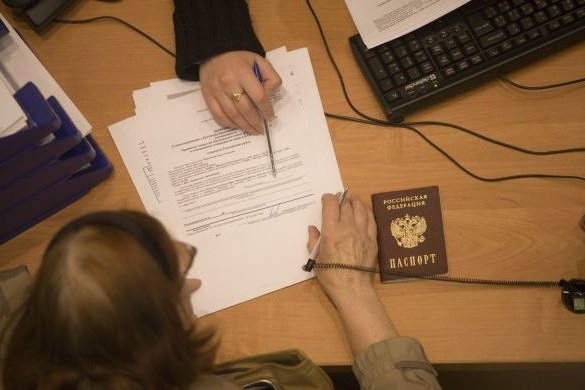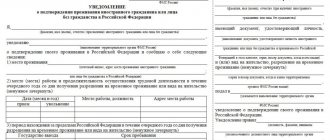Terminology
What is repatriation? This is the return of someone or something from abroad to their homeland. For example, citizens who live abroad, for some reason, decide to come back to the country where they were born and raised. This is usually how people return to their ethnic homeland. In international practice, the right to repatriation was enshrined in the Geneva Convention of 1949. When it was adopted, the issues of returning citizens to their homeland in peacetime were considered, as opposed to the movement of citizens from country to country during hostilities. In addition, there is the concept of “repatriation of proceeds”. In this case, the money that a person earned abroad is sent to his homeland. The term can also be associated with the fields of art and culture. In this case, certain values that are located abroad are sent to the state of their historical origin.
What is meant by repatriation?
If we literally translate the term “repatriation”, then translated from Latin it means “return to the homeland”. It is important that the concept is linked to the internationally recognized right of return. It is understood that every person, regardless of his origin, has the inviolable right to return to his native country.
Most often, repatriation is applied to persons who have been forcibly displaced. These are categories such as prisoners of war, refugees and other emigrants. We are talking not only about their return, but also about the full restoration of civil rights.
Naturally, each state where the term “repatriation” is relevant has its own characteristics, which are stipulated by law. If we talk about Israel, then the program there is called Aliyah. In Armenia it is Yerkir, in Kazakhstan it is Nurly Kosh.
In Poland the program is called Repatriation of Repressed Poles. Basically, it concerns those citizens who were subjected to repression under the USSR and exiled to Asia or beyond the Urals.
Return of citizens
Civil repatriation is a procedure that has its own specifics depending on the regulatory framework of the country that acts as the homeland for people. In a number of states, government interaction with migrants has its own national characteristics. For example, in some countries, citizens returning to their homeland have the right to temporary residence. The norms of other states provide for the acquisition of citizenship by these people. There are countries in the world in which the proportion of repatriates is quite high. In particular, in Israel, one fifth of the total population is displaced. In some countries, special attention is paid to the problem of returning citizens to their homeland. These include, in particular, Russia, Armenia, Hungary, Germany, Greece, etc. Immigrants here are guaranteed quite a lot of civil rights. According to experts, repatriation is a very positive phenomenon. First of all, this opinion is due to the fact that when citizens return to their homeland, labor and demographic resources are replenished. Based on this point of view, repatriation is a great benefit for the state.

Repatriation Romania
At the end of the year it is customary to sum up the results. The main event of 2021 for Russian migration market experts was the active participation of citizens of our country in Romanian government programs based on the Citizenship Law. Since naturalization is traditionally considered an expensive, complex and lengthy procedure that stretches out for many years and is not suitable for everyone, first Our fellow citizens are interested in the possibility of obtaining Romanian citizenship by repatriation. The term “repatriation” implies the unconditional right to restoration of citizenship of Romania for those who have lost it for reasons beyond their control. The main condition for participation in the program is the presence of a direct family connection with a Romanian ancestor. The simplified citizenship scheme is aimed at descendants of those born or lived in Romania between 1918 and 1940, and can document the existence of a family connection.
Since 2014, the EU Immigration Service team has been helping Russians collect all the necessary certificates and certificates to obtain a Romanian passport and EU citizenship under a simplified procedure.
Repatriation - Romania is looking for roots
The time period between 1918 and 1940 is considered the “golden age” of Romanian history. During this period, the state of Greater Romania had the maximum territory and included modern Moldova, as well as the south of the Odessa and Chernivtsi regions of modern Ukraine.
After the entry of Soviet troops into Western Belarus and Ukraine, Romania lost control over its former regions, and many residents of the regions were subjected to forced displacement and deportation. This gave rise to the creation of a special program - the descendants of such persons have the right to restore citizenship under a simplified scheme.
“Right of blood” or “Romanian roots” is usually referred to as a direct family connection with Romanian ancestors - father and mother, grandparents, great-grandfather and great-grandmother.
At the same time, the citizenship of the applicant, his country of permanent residence and his surname are unimportant - the right of blood applies to all residents of the countries of the former USSR and guarantees the restoration of Romanian citizenship without:
— in-depth language proficiency exams;
— tests of knowledge about the history and culture of the country;
- compulsory residence on the territory of the state;
- renunciation of existing citizenship.
Obtaining a Romanian passport and European Union citizenship guarantees the rights:
- Unlimited residence and free movement in EU countries.
- Visa-free travel to 140+ countries around the globe.
- Education at the best European universities under free or discounted education programs for European citizens.
- Employment in any EU member state.
- Organization and development of individual business projects.
- Access to profitable banking products.
- Receive qualified medical care anywhere in the united Europe.
- Applications for preferential terms of mortgage loans and social assistance.
Documents for restoration of citizenship
To prove Romanian roots, you need papers confirming direct kinship with ancestors born before 1940 in the country.
The Romanian Citizenship Law stipulates that the package must include:
- birth certificate;
— internal passport of a citizen of the Russian Federation;
- international passport;
— marriage certificate (in case of divorce, a divorce certificate is required);
— birth certificates of mother and father (if the applicant’s parents are deceased, a death certificate is required);
— parents’ marriage certificate (if the parents are divorced, a divorce certificate is required);
- documents of grandparents, if parents were born after 1940 (if possible);
- certificate of good conduct;
— a personal application for restoration of citizenship, certified by a notary (we will provide a sample);
— 2 color photographs 3.5x4.5 (for adults).
Those who plan to restore Romanian citizenship with children also need:
— child’s birth certificate;
— parental consent to restore citizenship to children, certified by a notary (we provide a sample);
- personal consent of the child, certified by a notary (for children from 14-18 years old; we provide a sample).
All required papers must be certified by a notary and translated into Romanian.
- Be careful!
At the moment, unscrupulous contractors have become more active in the legal consulting services market, assuring their clients that if the papers have been accepted, then citizenship is already “in your pocket.”
EU Immigration Service experts remind: a thorough check of the papers will be carried out much later, when the case is distributed to a specific official. Therefore, the main criterion by which one can judge the integrity of a company is the ability to personally (in person or online) check all the papers and make sure of their legality BEFORE submitting to the Romanian Ministry of Justice.
The legality of papers can only be confirmed by the authority that issued them. For Russians, civil registry offices and state archives in Ukraine and Moldova are recognized as official sources. If you are promised to find missing certificates without filling out a power of attorney, are not given the opportunity to independently verify the “purity” of all the papers, or are asked to transfer payment before they are verified, then most likely you are faced with scammers!
Algorithm for restoration of citizenship
The EU Immigration Service team has been successfully using an effective algorithm to restore Romanian citizenship for 5 years:
☛ Analysis of documentation provided by the customer.
☛ Search for missing certificates and certificates, requesting the necessary papers from the civil registry office and state archives.
☛ Formation of the applicant’s dossier with mandatory translation and notarization of all papers.
☛ Submitting a package of documentation to the Ministry of Justice of Romania.
☛ Preparation for the release of the order.
☛ Accompaniment for the procedure of taking the oath of state.
☛ Obtaining a Certificate of Romanian citizenship.
☛ Registration of internal documents in Romania.
You will never be left with a problem alone:
- EU Immigration Service specialists will advise you free of charge on all issues related to obtaining citizenship, find or restore lost documents, create a professional dossier, help you translate into Romanian, and notarize your papers.
- Experts will determine in advance the place for submitting documents, provide assistance in obtaining a visa, book a hotel, organize a meeting in Romania and transfer to the Ministry of Justice, and receive official confirmation of registration of documents.
- Experienced lawyers will monitor the publication of the Order on the restoration of citizenship and will monitor the sending of a letter with an invitation to take the oath.
- A professional tutor collaborating with the EU Immigration Service will help you learn the text of the oath and autobiography in Romanian.
- Based on the Order published on the official website of the Ministry of Justice, our specialists will help begin the procedure for preparing a package of internal Romanian and external pan-European documents.
✓ Important!
Unlike unscrupulous intermediaries operating in the consulting services market, EU Immigration Service provides customers with the opportunity to independently verify the absolute legality, reliability and “purity” of all certificates and certificates even BEFORE paying for our services and submitting the dossier to the Ministry of Justice.
Look at the reviews of our clients from Moscow, St. Petersburg and other cities in Europe, Russia, Ukraine, Asia, who have already received Romanian citizenship!
Still have questions?
EU Immigration Service specialists will be happy to provide comprehensive information on the easiest, fastest and most economical way to obtain Romanian citizenship.
Contact us by phone:
+7
+7 or in any other way convenient for you.
Become an EU citizen with us!
Return of capital
There are several opinions about what profit repatriation is. According to a number of experts, this procedure represents a conscious attempt by the state to return capital that was previously taken outside its borders in an unlawful manner. Considering the concept from this point of view, one can see in it an element of national financial and credit regulation. Control over repatriation allows the government and the Central Bank to contain inflation and stabilize the exchange rate of the country’s own currency. In addition, by managing the movement of funds, the proper quality of economic financial calculations is ensured. Some countries export capital, an integral element of which is the repatriation of currency. This allows governments to improve exchange rates and balance of payments.
Obtain Israeli citizenship by repatriation
Contact us
Israel is one of the most economically developed and progressive countries in the world. High-quality Israeli medicine deservedly ranks first in world rankings. Recognized education, high standard of living and social security, visa-free travel to 150 countries - all this is available with an Israeli passport.
The most common way to obtain Israeli citizenship is repatriation. Persons over 17 years of age who are subject to the Law of Return of 1950 can obtain a visa and automatically become an Israeli citizen. Israel, at the legislative level, strives for the repatriation of all Jews and facilitates the relocation of Israeli citizens to their historical homeland. The state recognizes dual citizenship, so it is possible to keep your current passport.
From the moment you arrive at the Israeli airport, you will feel comfortable as the lawyers of International Business will fully prepare you for repatriation. We will provide detailed information about the absorption process in Israel.
State goals
Any international movement of financial resources, including the repatriation of foreign exchange earnings, acts as one of the instruments of the national strategy in accordance with which the economy develops. It was said above that there are states that import money. As a rule, their policies depend on the real state of affairs in the economic sphere. In the case of normal, stable development, the state softens restrictions on the export and import of financial resources.
However, when a crisis occurs, financial circulation may become strictly limited. This, in particular, concerns the repatriation of currency invested in the economies of such states. Regulation of the movement of finance can be carried out in the interests of existing national monopolies, as well as to adjust economic macro indicators. The law on repatriation in a particular state may provide additional guarantees for procedures for cross-border movement of money, providing insurance protection for foreign finances in the event of political risks.
Repatriation of capital
The repatriation of capital is directly related to its export. During a period of deterioration in their economic situation, countries that exported capital introduce measures to ensure the return of invested funds. For these purposes, a special tax and credit policy is used, providing guarantees and benefits.
An example is France after the end of World War II, where government authorities in charge of exchange control allowed capital to be returned to the country through the precious metals market on preferential terms. This step by the government can be considered as an amnesty for national capital that left France on the eve and during the war. States that import capital often impose restrictions on the repatriation of capital invested in their economy when times get worse.
Repatriation of capital makes it possible for the country to declare an amnesty for those who previously illegally withdrew funds abroad. A similar problem is typical for today's Russia, where the monthly export of capital reaches $2.5 billion. This situation will apparently persist until discussions regarding legislation on capital amnesty are over.
In countries with fully developed economies, foreign currency received from the sale of an economic product is returned to the country in accordance with the norms and payment terms established in international practice. In anticipation of an appreciation of the national currency, the transfer of funds to the homeland is usually accelerated. In the context of the upcoming devaluation, the opposite phenomenon occurs: the return of revenues slows down. This has a negative impact on the country's economy.
Repatriation tax
It may be provided for in individual states and apply to non-residents. The tax is collected directly from the source during the actual transfer of finances abroad. Payments are made by the entity that transfers dividends, royalties, interest and other income to the non-resident. Typically, such fees apply to passive income. The regulations of a number of states provide for special tax deductions in case of payment of a repatriation fee. For example, if an entity conducts business abroad and has transferred the necessary amounts to the treasury, then it has the opportunity to receive compensation when transferring funds to the budget of its country or to pay a smaller amount.

Taxation of repatriated capital
In some countries there is such a thing as a tax on the repatriation of non-resident income. It is charged directly from the source when the money is actually withdrawn abroad. Payment of this tax is made by the entity that transfers one or another type of income to a non-resident: interest, royalties, dividends. As a rule, this type of fee applies only to passive income.

The legislation of some countries provides for special tax deductions in case of payment of repatriation fees. For example, if a citizen conducting business abroad paid these taxes to a foreign treasury, then he is entitled to compensation in the process of calculating fees to the treasury of his state (or a reduction in the calculated amounts).
Subtleties of calculations
Repatriation of capital directly concerns residents of Russia who carry out foreign trade activities. They are subject to regulations that establish an obligation to ensure that foreign entities receive money for services and goods from authorized banking organizations. In addition, residents’ finances must be returned to the territory of Russia in the event that an advance payment was transferred to a foreign partner, but he did not supply services or goods belonging to him to the Russian Federation. As an exception to the rules (when there is no need to carry out any returns to the homeland), there are cases in which interaction with foreign partners is based on the fulfillment of certain types of credit (debt) obligations.










